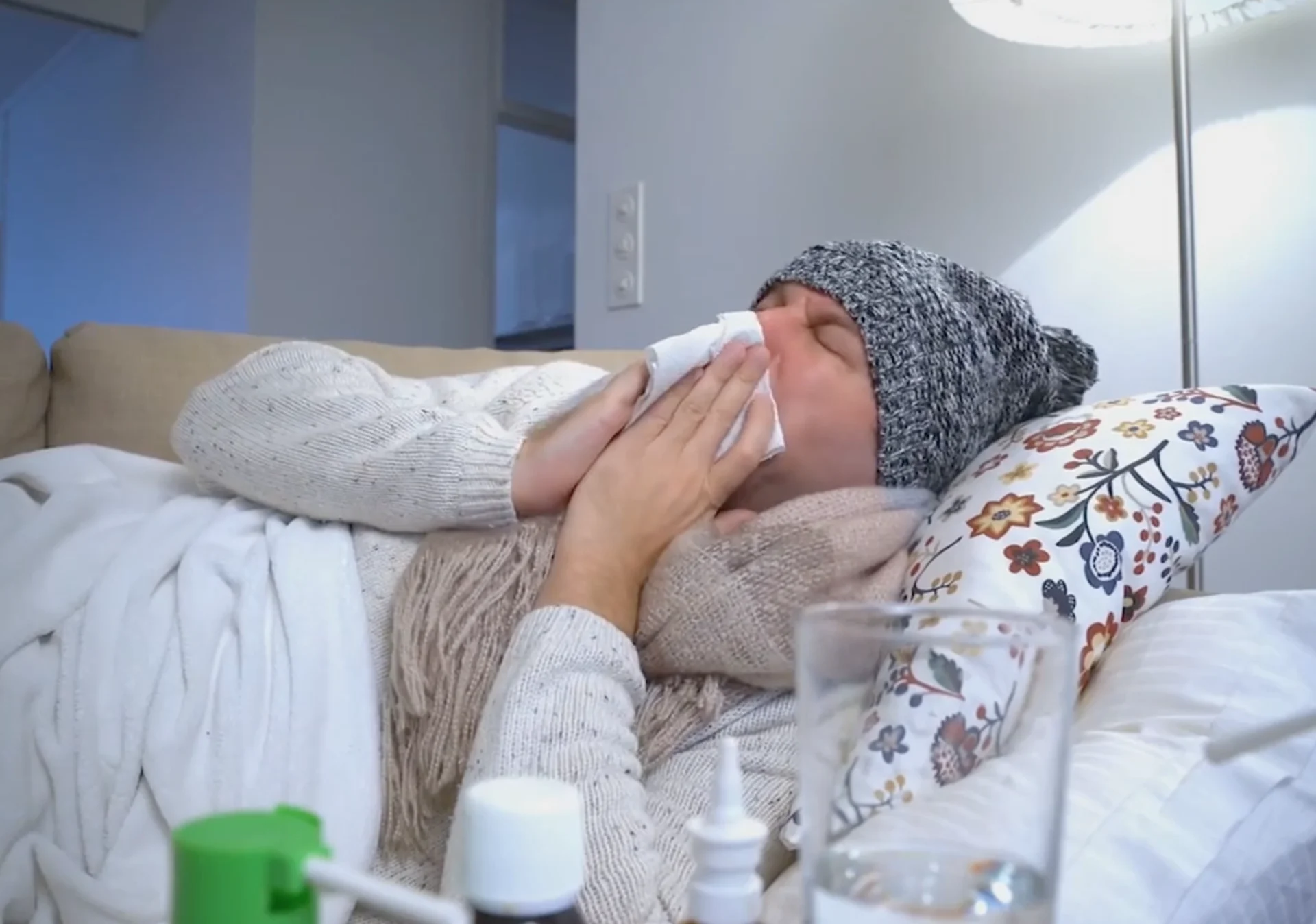
What is the difference between a cold, cough, and COVID-19?
The initial symptoms of COVID-19 are very similar to the seasonal flu and even the common cold, so you may not know whether you are infected with the coronavirus. In this episode of Health and Weather Extended, we provide some tips on what to do if you have symptoms and are worried you've been exposed to COVID-19.
With winter just around the corner so too is the dreaded season of sneezes, coughs and sore itchy throats. We’ve all been there longing for the days before.
But in the world of COVID-19, paying attention to what our symptoms are trying to tell us is more important than ever.
So to better detect what your symptoms could mean this cold and flu season, Rexall pharmacist Eric Lin is offering his health advice along with remedies to help alleviate your annoying symptoms even quicker.
Lin says that typically around the fall and winter months is when people are most vulnerable to getting sick, but it’s not the weather itself causing the virus.
“When the temperature is low and when the humidity is low, the virus becomes more active so it's easier to spread on other people, as well as when you're exposed to cold temperatures and low humidity for a long time, your immune system gets affected as well. Making you more prone to getting a cold.”
Waking up with a cough or sore throat in the world of COVID-19 can set off alarm bells when it comes to your health and wellbeing.
So to better understand the differences between having a common cold or the more serious COVID-19 virus, let’s first learn about their similarities in symptoms.
According to research conducted by the Centers for Disease Control and Prevention, CDC, COVID-19 and the common cold are both respiratory viruses that can easily pass from person to person through respiratory droplets, spread through coughing, sneezing, and even talking.
While both viruses spread the same, how does each one affect your health?
“For the similarity between them you may get a sore throat for both of them and a runny or stuffy nose for both of them and cough is pretty usual,” says Lin.
“However a COVID-19 cough is more on the dry side... Obviously fever is very common for COVID-19...cold it's not common. Once you get the fever, that’s one big [sign of COVID-19], and as well, if you get loss of taste and smell without nasal congestion, that’s a big sign as well. Also feeling really tired, like you got hit by a train, that's more common in COVID-19 versus the cold.”

(Stock photo/Videoblocks)
Now that we have learned how to better recognize our symptoms, let’s shift focus on how to relieve them.
Here's the top 3 ways you can beat a cold without even leaving the house.
Hydration and handwashing: Drinking lots of water helps get rid of congestion along with frequent hand washing to stop diseases from spreading to others
Honey and tea: two simple ingredients that help to sooth a sore throat in a matter of minutes
Gargling salt: If you’re in a pinch, use a pinch of salt. All you do is boil water with salt, wait for it to cool down to a nice warm temperature then gargle for 30 seconds to elevate an itchy throat
The best tip out there to protect your health and the health of others, is knowing when to treat your symptoms.
When it comes to a cold, symptoms can last anywhere between 3-8 days - while the more serious coronavirus can last for 2-4 weeks.
If you are still experiencing harsh symptoms without reprieve for beyond 48 hours, it’s time to contact a health profession, says Lin.
“Obviously with 400 locations across the country our goal is taking care of one patient, one person at a time. You are able to come into any of our locations and we’re able to look at you at a holistic picture, making sure your medical history is okay to select the right product for your symptoms.
But at the end of the day nothing is more healing than peace of mind. If you are experiencing symptoms associated with COVID-19, the sure way to find out if you infected a common cold vs the COVID-19 virus is to get tested.
“We strongly recommend everyone to get tested and again to get vaccinated to protect yourself and your loved ones,” says Lin.
COVID-19 has made health our primary focus. However, how do you distinguish between COVID-19 and another illness if you wake up with a cough on a cold winter morning? Don’t freak out. With the right tools you can better detect your symptoms and take appropriate precautions to keep yourself and everyone safe around you.
For more information on flu, COVID, and common cold symptoms, please watch the video that leads this article.










